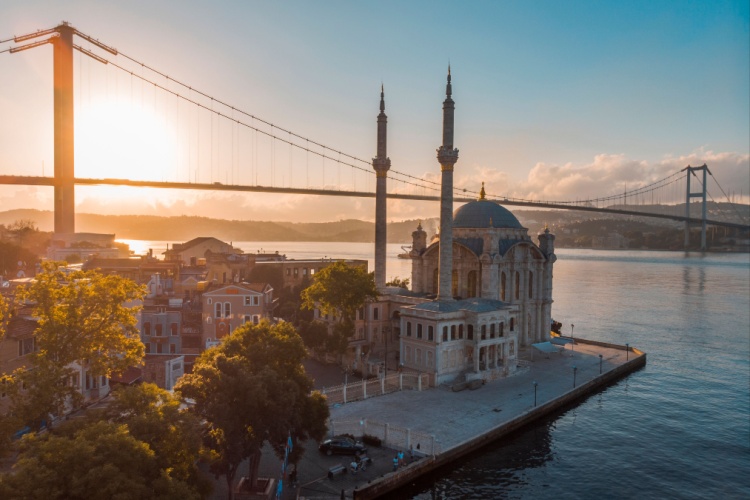
BLOG
- ELİTE WORLD HOTELS & RESORTS
- BLOG
- ON THE ROAD TO INDEPENDENCE: INTERESTİNG INFORMATİON ABOUT THE MARCH 18 ÇANAKKALE VİCTORY
On the Road to Independence: Interesting Information About the March 18 Çanakkale Victory

Our history is full of many successes that made our name known to everyone and affected the whole world. One of the most important victories of the heroic Turkish army is the March 18 Çanakkale Victory. Preparations have already begun all over the country to commemorate our martyrs on the anniversary of this epic. Let's take a look at the Çanakkale Victory and its unknown aspects, which changed not only our history but also the history of the world and was a cornerstone on the path to the establishment of the republic.
March 18 Çanakkale Victory
The Çanakkale Victory, which is of great importance for Turks and world history and disrupted all the plans of the Allied Powers, is the result of the unprecedented courage of the Anatolian people. Turks, who fought against the great powers and navies of the world, won this war by resisting until the end without losing their hope, determination, and perseverance.
The Ottoman Empire resisted with all its might, both on land and at sea, against the Allied Powers who wanted to seize Anatolia. In the naval battles that took place between November 3, 1914, and March 18, 1915, our enemies aimed to cross the Dardanelles and reach Istanbul, but they were unsuccessful. The war lasted as land battles on the Gallipoli Peninsula between April 25, 1915, and January 9, 1916.
The Battle of Gallipoli, in which approximately 500 thousand of our soldiers were martyred, is the most important turning point where Mustafa Kemal Atatürk demonstrated his military genius on the ground and luck turned in Turkey's favor. Because the resistance in these wars and the success that came at the end both disrupted the balance of power in the world and paved the way for the victory of the War of Independence in the future by enabling the Anatolian people to recognize Mustafa Kemal.
The British Attacked Before the War Started
The Ottoman Empire was losing land in the wars it fought before the Battle of Gallipoli. This made the Western states think that they could easily defeat the Ottomans. So much so that the British were fascinated by the lands they would gain after the war and were intoxicated with victory before the war even started. Because they were very sure that they would win the war, they printed banknotes with the words "120 Gümüş Kuruş" to use in Istanbul and brought them with them. Of course, they never took into account what they would lose if they failed. They bombed Seddülbahir before the war even started, causing 86 of our soldiers to be martyred. However, the destruction caused by the Turkish power deeply affected all states, especially England.
The First Steps of the Cold War Were Taken in Çanakkale
Turks, who protected the Dardanelles, achieved a great victory, blocking the roads to the Tsardom of Russia. This caused France and England to be unable to send aid to the Tsardom of Russia. When no help was received, the Bolsheviks led by Lenin revolted. They overthrew the monarchical order in the country, established the Soviet Union and withdrew from the war. The withdrawal of a powerful enemy from the war created an advantage for our country. With the establishment of the Soviet Union, the foundations of the Cold War were laid, which would last until 1991.
Turkish Women Showed Their Strength in This War as Well
The whole country fought hand in hand in the Gallipoli Campaign. Women played an important role in the Gallipoli Campaign, as in every war. Turkish women, who gained experience in the Balkan Wars, supported the army with great effort. Our first Turkish nurse, Safiye Hüseyin, one of these countless heroes, joined the war on the Reşit Pasha Ferry and sacrificed her life for the recovery of our soldiers. In addition, female infantrymen and female snipers also took part in the fight.
Our Three Big Teams Joined Forces
Galatasaray, Fenerbahçe and Beşiktaş clubs, old rivals, and eternal friends, were on the side of the army in the Gallipoli Campaign. According to official data, 30 athletes in the big three were martyred on different fronts. After fighting on the front lines, the football players returned to Istanbul, played a game, and then went back to the front to fight. The stories of heroic football players who made great sacrifices to win the war were also the subject of books.
The War Where Humanism Is Above All Interests

Australia and New Zealand, as colonies of England, fought in Çanakkale. Many of the Anzac soldiers fighting for England were martyred. Mustafa Kemal Atatürk wrote a letter to the Anzac soldiers and their mothers who died in the war. He ended the letter with the words, "After sacrificing their lives on these lands, they became our children as well " and gave a lesson in humanity to the whole world. The English translation of this letter is located at the Atatürk Monument in Wellington, the capital of New Zealand. April 25 is celebrated as Anzac Day. Each year, thousands of Australians and New Zealanders come to Gallipoli to attend commemoration ceremonies.
The Highest Bullet Rate per 1 Square Meter was Observed in the Gallipoli Campaign
Numbers are the most important indicator of understanding the Gallipoli Campaign. While the probability of two bullets colliding in the air is one in 600 million, hundreds of bullets collided in the air on this battlefield. According to research, 6000 bullets fell on 1 square meter and this number is the highest among all wars to date. In the letter he wrote to his mother, Austrian private infantry J. C. Davies mentioned that a deceased sniper Turkish girl that they captured had 52 bullet wounds on her body. This information once again reveals the gravity of the war.
















